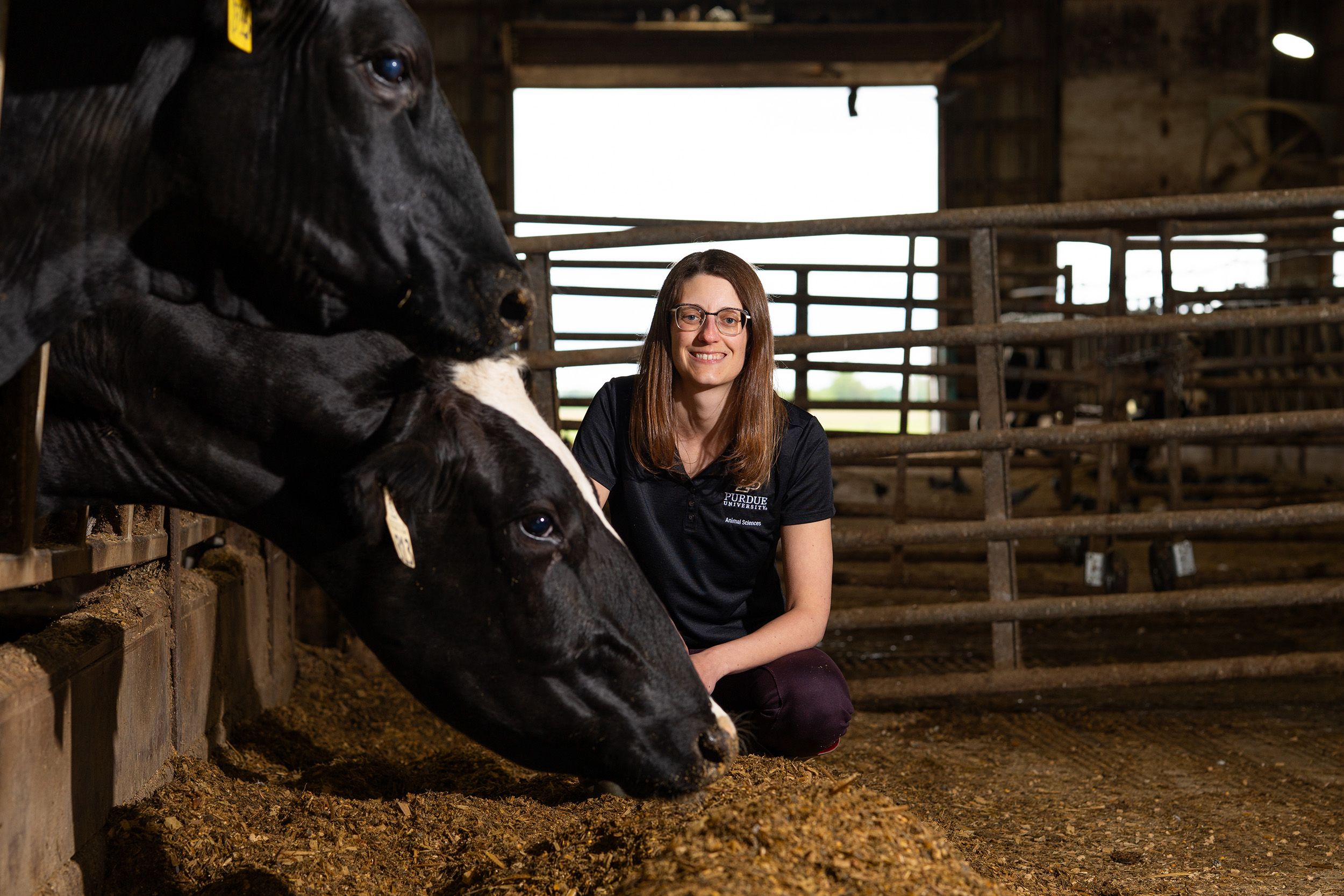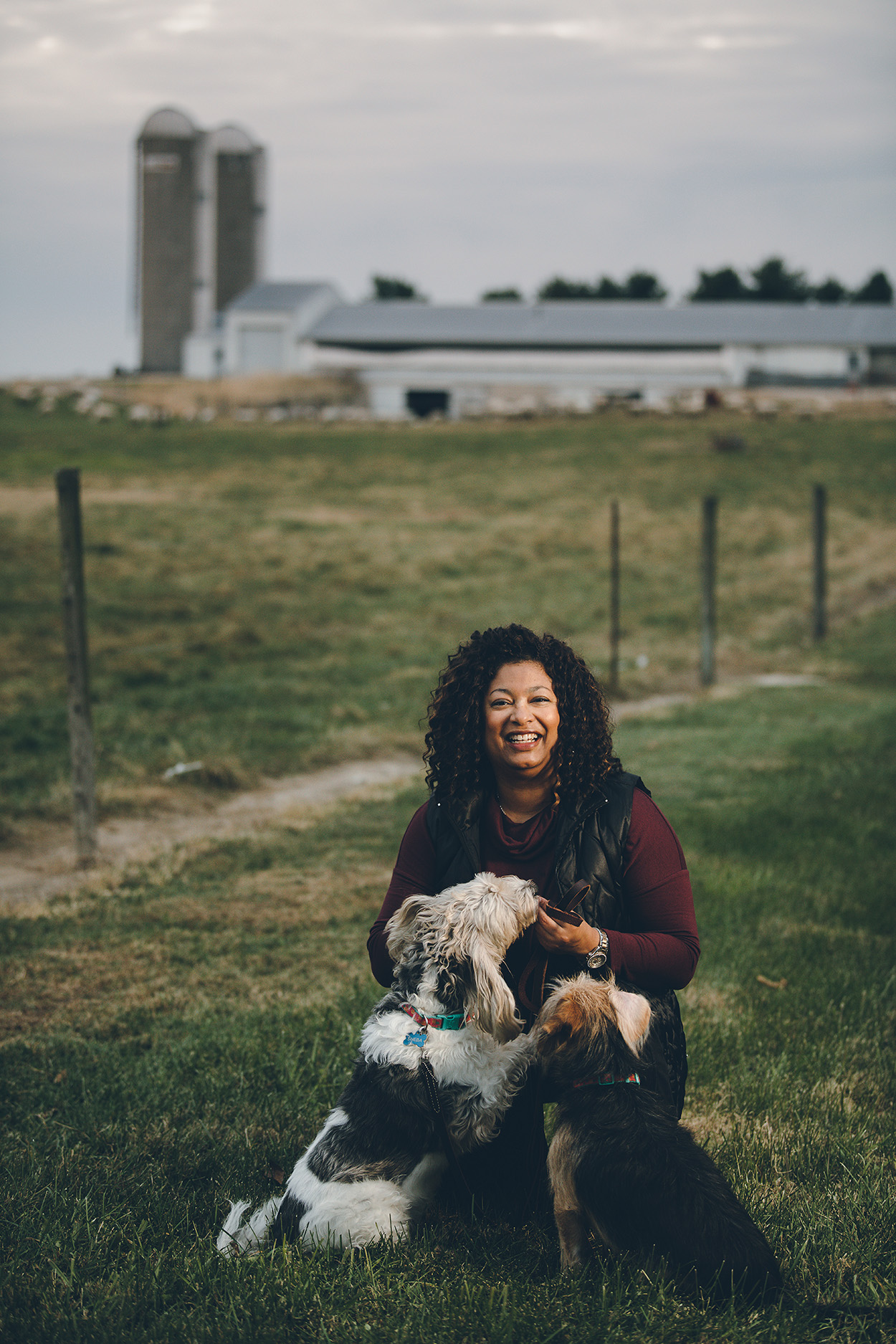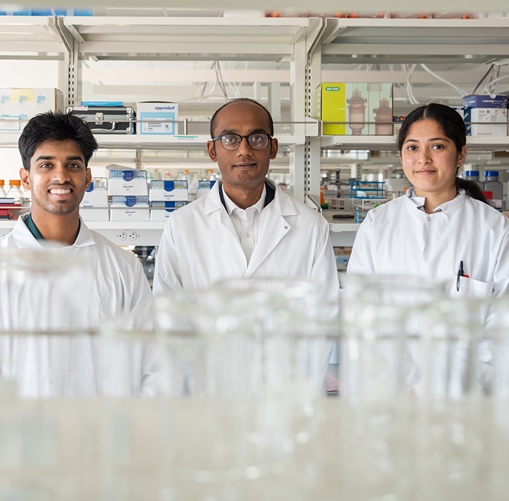Understanding animal behavior and welfare at Purdue
Have you ever wondered how dairy cows express positive or negative emotions? Or how researchers measure what animals need to live fulfilling lives? Or how parasites and disease can affect the health, behavior and egg production of laying hens? That’s exactly what scientists in Purdue University’s Department of Animal Sciences are working to understand.
Heather Neave, assistant professor of animal behavior and welfare, conducts research focused on the mental states of dairy cattle and which management practices promote positive emotional states while reducing negative ones. Heather Neave, assistant professor of animal behavior and welfare at Purdue University, studies how management practices impact the emotional states of dairy cattle. (Photo by Joshua Clark)
Heather Neave, assistant professor of animal behavior and welfare at Purdue University, studies how management practices impact the emotional states of dairy cattle. (Photo by Joshua Clark) “It is crucial to prevent suffering and feelings of negative emotional state—such as fear, frustration, boredom—not only because it is ethically the right thing to do, but also because these animals are also more likely to become sick, injured and have lower productivity,” Neave said. “However, preventing suffering is not enough for an animal to have a good quality of life. Beyond this, animals should have opportunities to experience positive emotions, which contribute to a life worth living.”
Marisa Erasmus is an associate professor of animal sciences. Her research and extension program focuses on providing science-based information to improve animal welfare practices and guidelines. Erasmus’ current research project, in collaboration with Purdue Associate Professor of Animal Sciences Luiz Brito and Amy Murillo, Ph.D., of the University of California, Riverside, investigates hens’ resistance to northern fowl mites, which is one of the most harmful ectoparasites in the egg industry. The goal of this research is to support both animal welfare and egg production. Marisa Erasmus, assistant professor of animal sciences, leads a research and extension program that provides science-based information to improve the welfare of poultry. (Photo by Tom Campbell)
Marisa Erasmus, assistant professor of animal sciences, leads a research and extension program that provides science-based information to improve the welfare of poultry. (Photo by Tom Campbell) Erasmus also studies how management strategies affect poultry behavior, and she also serves on the board for the Poultry Extension Collaborative (PEC).
“At Purdue, we are fortunate to be able to study the behavior and welfare of various farm animal species and use cross-cutting, multidisciplinary approaches to work toward a holistic understanding of animal welfare,” Erasmus said.
Candace Croney is another researcher in the department whose work focuses on the topic of animal welfare and behavior. She is a professor in both the Department of Animal Sciences and the Department of Comparative Pathobiology. She also serves as the director for the Center for Animal Welfare Science.
 Candace Croney is a professor of animal sciences and director of the Center for Animal Welfare Science at Purdue University. (Photo by Charles Jischke)
Candace Croney is a professor of animal sciences and director of the Center for Animal Welfare Science at Purdue University. (Photo by Charles Jischke) While not all faculty in the department specialize directly in animal welfare and behavior, many contribute to the field through their research in genetics, nutrition, physiology and animal health. For example, Brito’s work in genetics supports the development of welfare-informed breeding strategies, while Gregory S. Fraley’s research in poultry neuroendocrinology helps explain how the animals respond to environmental stressors. Darrin Karcher’s research projects address industry concerns in meat birds and laying hens, focusing on poultry well-being, food safety and quality.
Through its research, teaching and Extension programs, the Purdue Department of Animal Sciences works to deepen understanding of animal welfare and behavior and to share those insights with the public.






